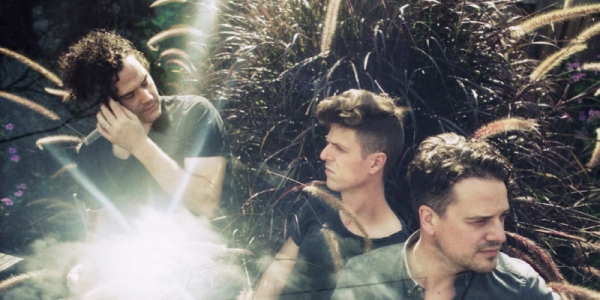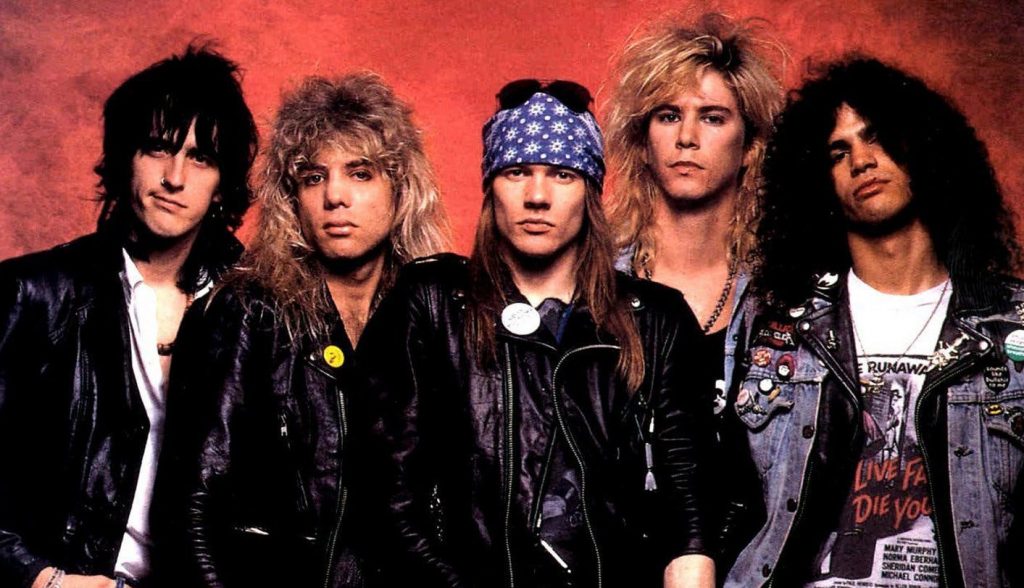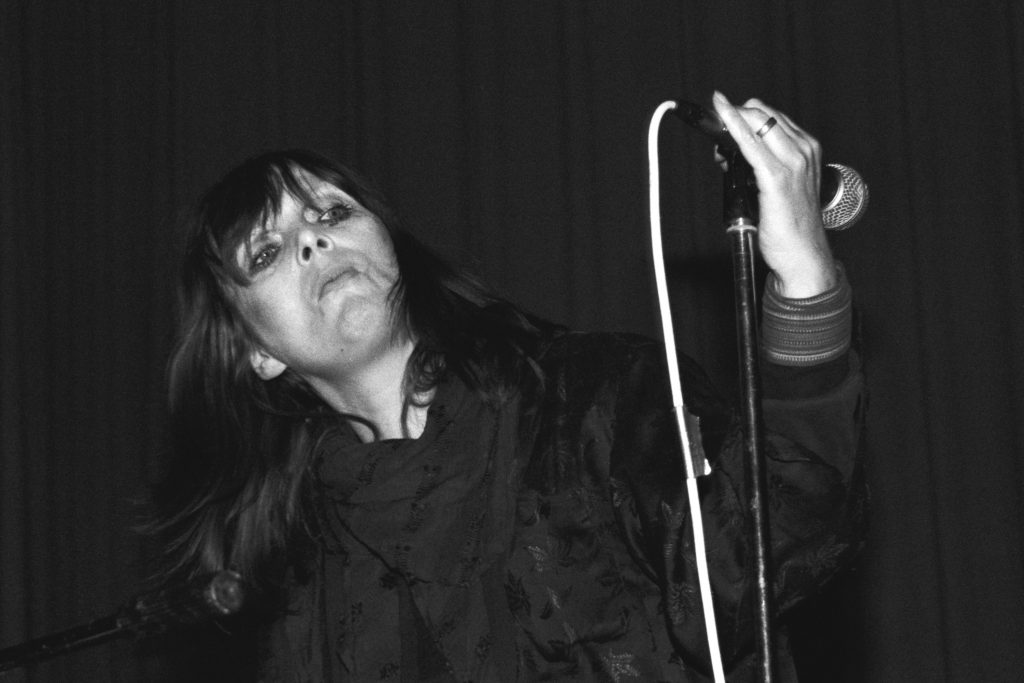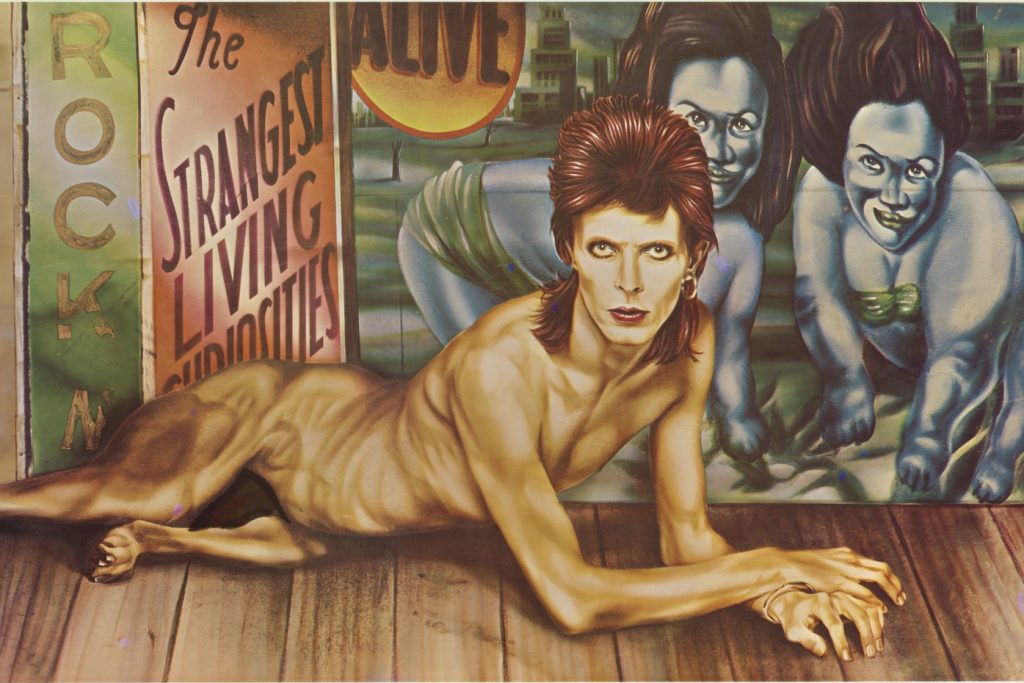“We don’t really like rehearsing. Well I don’t, I’ll speak for myself here. We tour enough in Australia and Europe, and the last couple of years we’ve done America a few times, so we end up together a lot. We rehearse when we need to do that.”
Considering PVT’s meticulous implementation of electronic sounds, it’s no great surprise to hear that computers helpfully facilitate their trans-hemispheric operations. Pike explains how they’re able to easily confer on songs when separated by the Indian Ocean.
“A lot of what we do is electronic so it’s not really a problem. We do a lot of file swapping and we’re so connected to our computers these days; it’s not really an issue.”
PVT released their fourth full-length record Homosapien in February and while the songwriting involved plenty of remotely conducted pre-production the band did get together in a studio to record the majority of the album.
“We demo stuff on our own and send each other files – beats and loops, I’ll mumble some vocals at home, Laurence records a bit of one microphone drumkit at home – until we feel like we’ve got enough ideas going. Then it comes time to get into the studio and we get together. [For] this record we spent about a month outside of Sydney together trying out ideas and going through whatever we envisaged was going to happen. Sometimes it’s pretty much written already so it’s just a matter of recording it. Then there’s a third stage, which is to take it all away and sift through it, do some extra editing, and I finish up on vocals. I did a lot of vocal sessions after that main band session.”
Interestingly, the band opted to record in a location far removed from the everyday gadget-splayed universe, setting up in a turn of the 20th century mansion in country New South Wales.
“We wanted to get together and go somewhere we could just have no distractions. That’s a dream for most bands, to have that privilege. Laurence had done a record in this place near Yass, he played drums with Jack Ladder, and he was like, ‘Man we should go to this place, it’s awesome’. It’s a lot cheaper to go somewhere like that, rent a bunch of gear and get an engineer that we knew (Ivan from Sydney band Ghoul). It was like the rock’n’roll dream; probably less drugs and models.”
The band spend three weeks residing in the country mansion but they didn’t quite embrace the idyllic surrounds, instead working non-stop on the record. “It got a bit hard at one point, especially because we didn’t give ourselves weekends. We literally worked every day for three weeks from start to finish without a break. That fucks with your head a little bit. I wish we took a break once a week just to have a barbeque or something,” says Pike.
Working relentlessly for such an intensive period is likely to do peculiar things with one’s perception of reality and Pike alludes to the time warp they found themselves in.
“It becomes a bit like Groundhog Day. You wake up every day and go, ‘Right, what are we doing? Oh, we’re doing the same thing that we started doing yesterday, which is making an album.”
It was by no means a three week bender of extravagance and PVT’s commitment to their art saw them apply themselves with professional rigor. “We had an A4 piece of paper for each song idea, with the working title of each song. In the morning we would drag ourselves out of bed, make a cup of coffee and all stand around this dining table looking at all these pages with all these songs on them, ticking off boxes. It was like a business meeting every morning.”
PVT songs characteristically comprise much textural complexity and layered subtlety. Evidently each song is subjected to much deliberation and mutual scrutiny, but Pike says occasionally a song will find its final form in an initial creative outburst.
“There’s a couple of tracks that the very first demo I did ended up on the record because they felt like we couldn’t really improve on them. The more we tried to improve on them it was more like pulling a thread and it falling apart. There’s one track called Electric, which I wrote really quickly. The guys had done a demo backing, just a beat and a bassline, and they sent it to me. I did a vocal at home and it came out in a day.”
Homosapien is PVT’s most melodically stated album to date, however this increased clarity is not the result of the band feeling external pressure to make something more accessible. Pike confirms they retained stylistic freedom when making this album.
“The really nice thing about our band is we’ve never tried to impress anyone or tried to have a hit single or ever had a label that’s breathing down our neck and our manager’s really fantastic. We kind of always do whatever the hell we want,” he says.
In fact, even satisfying the expectations they had of themselves was less demanding than their determined intentions for previous record, 2010’s Church With No Magic.
“I think there was more pressure on ourselves by ourselves for the last record. We walked in there really trying hard to do something really different; and it came out different, like nothing else I think. But at the same time you can hear it in the music; there’s a lot of exertion going on. Whereas this record there was less of that, we were just in a happier place with this one, so I think it sounds like that,” says Pike.
It’s not as if PVT were strangers to melody in the past but often the vocals were obscurely positioned within the industrial arrangements on their earlier records. Conversely, Homosapien shows off Pike’s melodic strength and accordingly the vocals have leapt forth in the mix.
“Whereas the last album was very full and intense, this record has more openness so you can hear everything clearly. Everything has more space, everything has room to breathe and that means the vocals have room to breathe. I sang as much on the last record, but there’s just more space for vocals now.”
Homosapien does feature an altered production perspective, but it also reveals much greater lyrical depth. Pike’s admits his growing confidence as a songwriter was partially responsible for the change in dynamic.
“I feel like I’m becoming a stronger songwriter. I feel like we had something more to say. There’s more storytelling in this record for sure. The last one was really stream of consciousness and a real letting go of things and a real exploration. This one is a lot more focused. The album has a theme. It’s not a concept album, but it’s got a theme.”
Despite the sharpened demeanour of the new record, PVT’s music continues to evade entering territory that’s straightforward or predictable. Making challenging music, which forces free of convention, while also expecting to achieve longevity in the mercurial music industry mightn’t seem plausible, but Pike dismisses this is of any concern for PVT.
“If you’ve got an idea which is original and unique you’ve got more chance of people following you for the next 20 years than having a one-off pop hit. I’d like to think that we’ve always stuck to our guns and done whatever we want, because we’re on a mission to do something unique and that’s always been the most important thing to us.”
Homosapien is another testament to PVT’s tenacity to chase their artistic ideals and overarching ambition to express something distinct. Pike stresses that they have no interest in following the abstract directions for attaining commercial success or having their outlook cluttered by business logistics.
“Playing the game, as soon as you sense yourself doing that you feel wrong, you feel dirty. That’s why we have a manager and a record label, that’s what they need to worry about.”
BY AUGUSTUS WELBY







